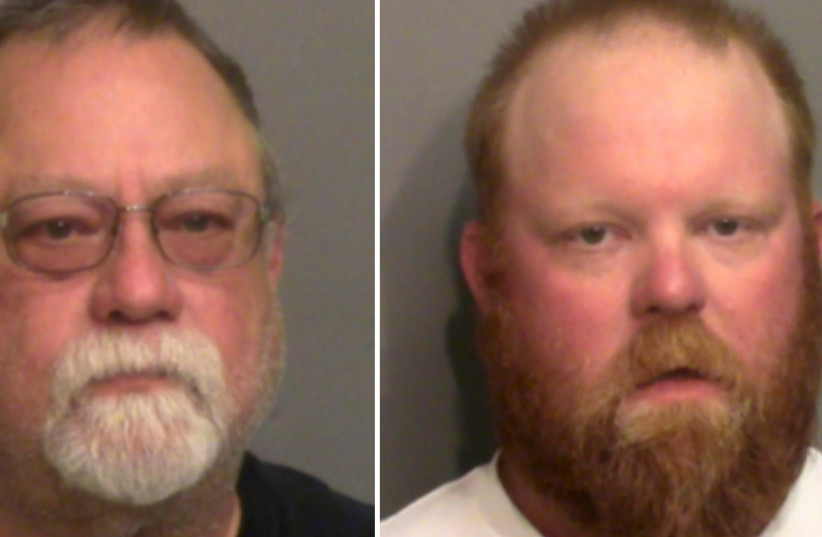Jury selection was due to begin on Monday in the US federal hate-crimes trial of the three white men who murdered Ahmaud Arbery, a Black jogger who was chased and shot while running through a mostly white Georgia neighborhood.
The jury will be asked to decide whether racial animus drove the defendants to fatally pursue Arbery in the Satilla Shores neighborhood in coastal Georgia in February 2020. Gregory McMichael, 66, his son Travis McMichael, 36, and neighbor William "Roddie" Bryan, 52, were convicted of murder in an earlier state trial.
A state judge sentenced the men to life in prison, ruling that the two McMichaels would not be eligible for parole, after a jury of one Black man and 11 white men and women rejected the men's self-defense claims in November.
Jury selection in the federal trial, which the US District Court in Brunswick has said could take two weeks, comes shortly after Gregory and Travis McMichael offered to plead guilty to the hate crime charges in agreements with prosecutors that were later scrapped.
Selecting a jury to hear the case will be complicated by the publicity that surrounded both the murder and the earlier trial, said Julie Campanini, a jury consultant based in Philadelphia.

"Potential jurors might have firm opinions," she said. "That doesn't disqualify them though. The test is whether they can set that aside and decide the case only on the evidence presented."
The McMichaels nearly avoided the federal trial by entering into a plea deal with prosecutors.
At a hearing last week, Travis McMichael said he was willing to admit to trying to apprehend Arbery because of his "race and color" as part of the plea agreement.
But he changed his mind after US District Judge Lisa Wood rejected that agreement. She said she would not accept it because it bound her to a fixed sentence: 30 years in federal prison before he would be handed back to the state of Georgia to serve out the rest of his life sentence for murder.
Gregory McMichael had reached a similar plea agreement with prosecutors, but also withdrew from it.
Arbery's father Marcus Arbery said the family wanted to see the case go to trial. "We want the world to see a trial, see why these men did what they did," he said in an interview.
The men are charged in federal court with using threatening force to interfere with Arbery's rights on the basis of race, a hate crime. The charge carries a maximum of life in prison.
The three are additionally charged with attempted kidnapping, and the McMichaels face gun charges.
Judge Wood said in court that she plans to call 50 potential jurors a day, drawn from 43 south Georgia counties, until a panel of 12 jurors and four alternates are found.
Campanini said that the court could struggle to call 50 people every day, given there are only three sets of defense attorneys, as well as the prosecution, all of whom could possibly interview each potential juror.
"They'll seat a jury, but don't count on it being quick," she said. "It will take a significant about of time."
